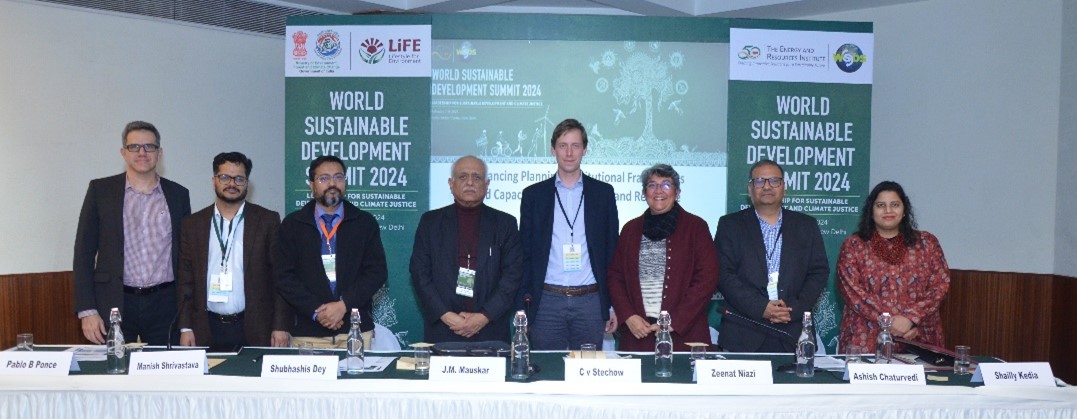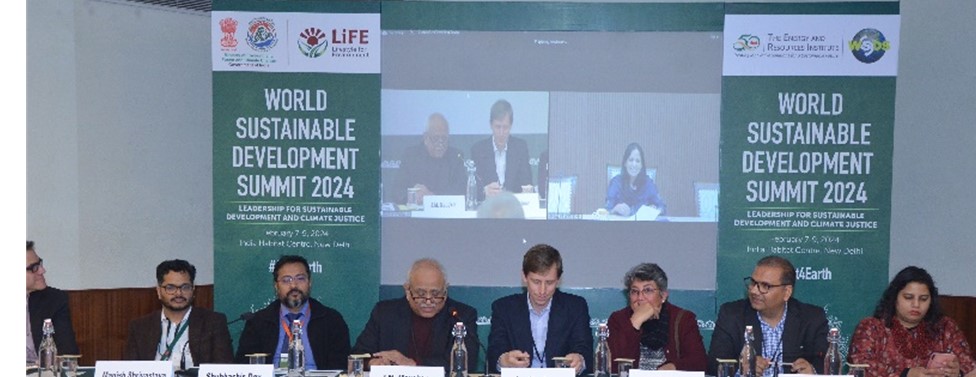
Shakti Sustainable Energy Foundation participated in a panel discussion on ‘Enhancing Planning, Institutional Frameworks and Capacities on Adaptation and Resilience’ on February 8, 2024, in New Delhi, as part of TERI’s flagship event, World Sustainable Development Summit. The panel was moderated by Shri J.M. Mauskar, Former Special Secretary, MoEFCC, and attended by dignitaries like Shrimati Supriya Sahu, Additional Chief Secretary to Government, Department of Environment, Climate Change and Forests, Tamil Nadu, Dr Pablo Benitez Ponce, Senior Environmental Economist, World Bank and Dr Christoph von Stechow, Senior Policy Advisor, German Ministry for Economic Cooperation and Development (BMZ).

Shubhashis Dey, Director Climate Policy and Climate Finance, said “Economic prosperity of a nation and its citizens inherently builds resilience within the communities which were otherwise vulnerable to severe climate events. Again, in absence of a better indicator, economic prosperity is a function of production or income generation. To build internal resilience and adaptive capacity, India must become a developed nation by 2047. However, the catch is that development paradigm must be low carbon – which requires effective and people-centric planning and policies. Experience like the effective disaster response mechanisms build in coastal Odisha should be studied closely while developing new adaptive strategies.”
This session brought together key stakeholders from government, non-government, and development agencies engaged in strategic planning for resilience, emphasising the role of integrated planning and institutional frameworks for climate adaptation and building systemic resilience. Lessons from various planning processes, including SAPCCs, were discussed. It also demonstrated how a multi-sector planning framework enabled a systematic introduction of nature-based solutions to build climate resilience at scale and in a cost-effective manner. Integrated coastal zone management planning was highlighted as a method to place green natural capital at the core of resilience planning, enabling the delivery of global public goods, including biodiversity protection and carbon mitigation, while also safeguarding livelihoods through people-centric development that considered natural capital-based job creation and income diversification.

